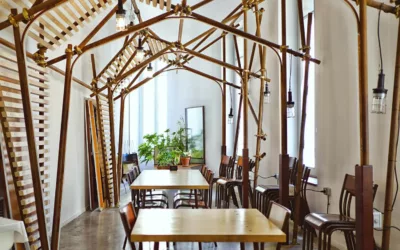Opening a new restaurant is an exciting endeavor, but it requires careful planning and execution. To maximize your chances of success, you need a comprehensive checklist that covers every aspect of restaurant development. This article provides an extensive roadmap with essential tasks and considerations to help you navigate the intricate process of starting a new restaurant. Let’s delve into each stage in detail.
Market Research and Concept Development for Opening a New Restaurant:
Before opening a new restaurant, conducting thorough market research is indispensable. This step provides an accurate understanding of the competitive landscape, target market demographics, and emerging trends in the foodservice industry. Analyzing consumer preferences, eating habits, and the demand for various cuisines in your area enables you to develop a unique concept that caters to the specific needs and desires of your target audience.
- Define your target market through a meticulous analysis of age groups, income levels, preferences, and location. Customize your menu, ambiance, and marketing strategies accordingly.
- Craft a distinctive restaurant concept that sets you apart from competitors. Consider a memorable theme, décor, and ambiance to attract patrons and cultivate their loyalty.
- When selecting the perfect location for your restaurant, consider various factors, including foot traffic, visibility, parking facilities, and accessibility. Additionally, consider neighboring businesses and the local demographic to ensure compatibility.
- Familiarize yourself with local laws and regulations pertaining to restaurant operations. Obtain the necessary licenses, permits, and health inspections to ensure compliance with legal requirements.
- Develop a detailed business plan outlining your vision, mission, target market, marketing strategies, menu development, and financial projections. This plan assists in securing funding and provides a roadmap for your restaurant’s success.
- Determine the capital required for your restaurant and explore financing options such as loans, investors, or personal savings. Establish a realistic budget and allocate funds for various categories, including rent, renovation, equipment, staffing, marketing, and inventory.
- Enlist the services of a skilled architect or interior designer to create an inviting and functional restaurant layout. Take into consideration factors such as the kitchen design, seating arrangement, bar area, restrooms, and accessibility for disabled patrons.
- Choose an appealing color scheme, logo, signage, and furniture to create a memorable customer experience and foster brand recognition.
- Prioritize the purchase of high-quality kitchen equipment that aligns with your specific menu. This includes appliances such as ovens, refrigerators, commercial cookers, and food preparation stations.
- Develop relationships with suppliers and vendors who can provide you with fresh ingredients and essential inventory. Implement a comprehensive inventory management system to monitor stock levels and minimize waste.
- Define detailed job descriptions for each position and conduct a meticulous hiring process to attract competent employees. Foster a positive work environment that promotes teamwork, professionalism, and excellent customer service.
- Ensure that your staff understands your restaurant’s vision, menu, service standards, and food safety protocols. Continually invest in ongoing training and development to enhance employee skills and productivity.
- Develop a menu that reflects your unique concept and appeals to your target market. Consider factors such as ingredient availability, dietary trends, and profitability margins while offering a variety of options to cater to different customer preferences.
- Conduct a thorough cost analysis, taking into account ingredients, labor, overhead expenses, and desired profit margins. Set menu prices that align with the value you provide while remaining competitive.
- Utilize various channels, such as social media, traditional advertising, influencer collaborations, and community events, to build anticipation and create a buzz around your grand opening.
- Grand Opening Event, Host an unforgettable grand opening event to introduce your restaurant to the community. Utilize promotions, specials, and giveaways to attract customers and generate positive word-of-mouth.
Conclusion:
Embarking on the journey of opening a new restaurant can seem overwhelming, but with a comprehensive checklist, you can navigate each stage of restaurant development with confidence and increase your chances of success. By meticulously planning and executing each task, you enhance the likelihood of creating a thriving and memorable dining experience for your patrons. Good luck on your exciting new restaurant venture!





0 Comments